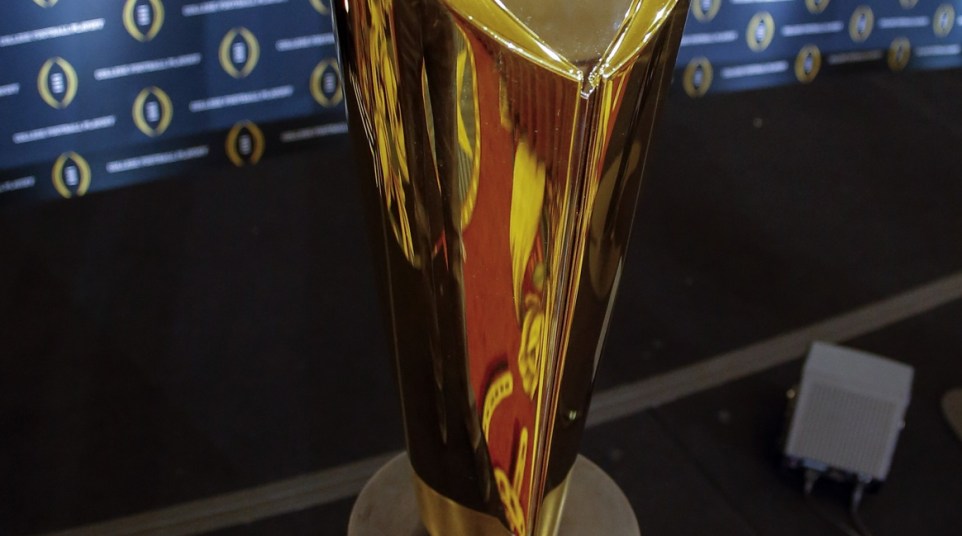
4-team playoff system and figuring out the odd conference out
Derrick Henry rushed 90 times in two games.
That’s almost as many times as Alvin Kamara and Jojo Kemp ran the football the entire 2015 season.
The man is 6-foot-3, 242 pounds. He could pass for an NFL middle linebacker on the street, yet he outran SEC defensive backs with regularity. His offseason workout consisted of roping himself to a massive truck and towing it with his body.
Imagine what that guy can do on 11 days of rest.
Well, we can — 36 carries for 158 yards and 3 touchdowns against Clemson in a 45-40 national championship game victory.
Looks about right, doesn’t it? Only, the box score doesn’t tell the whole story. After a 50-yard touchdown in the first quarter, Henry gasped for air. It was there the rest of the game: He looked exhausted.
If that’s what a 15-game schedule did to the most indestructible running back in college football, imagine how mere pedestrians, by Tide standards, would feel if they had to play Ohio State or Stanford next week.
Before last year, I was all for an expanded playoff. So we finally won over the college football big wigs, I thought. Now it’s just a matter of time before we all clamor for an eight-team field. Or 16. Heck, let’s follow the FCS system and make it 32.
That’s what makes the NCAA Tournament so great, right? It gets decided on the court?
While every year, an early “body clock” loss to Northwestern is the difference for a team like Stanford, which finished with two losses as the Pac-12 champion. Or how about Ohio State, one of many unlucky close-game victims of Michigan State this season? The Cardinal and the Buckeyes earned impressive bowl-game victories, but didn’t get an opportunity to compete for a national title.
Normally, this is where a writer would insert an indignant rant about the whacky NCAA and the wonky FBS system. You wont find it here.
One so-called power conference gets left out of the four-team field every year. And it’s glorious. The entire Big 12 season was about redemption. About proving they belonged. No matter that Oklahoma got shelled by Clemson. At least the Sooners were in the playoff.
Hey, regulation works for the Premier League. This is the same principle.
The one thing the BCS system got right was creating an impassioned year-long debate. Every game mattered. Every fan held a strong opinion about who deserved a chance and who didn’t.
Going to four teams preserved a chance for teams that stumbled once. It’s hard to get through a 13-game season, in today’s age of parity, unblemished. Not even Alabama has managed that since 2009.
Start letting teams with two and three losses into the field, though, and the debate loses some of its tension. We’ve seen it with the NCAA Tournament, as no one cares about the 69th team that got left out of the field. Five isn’t the same as 69, but that’s a good thing. People still care.
And besides, do we really want to see college coaches resting their starters during rivalry week to preserve them for a longer playoff? Can you imagine being deprived of seeing Henry blast into the line of scrimmage again and again in this year’s Iron Bowl because coach Nick Saban knew there were four or five more games left?
College football is inherently unfair. Not every team plays the same schedule. Some teams get the right luck with injuries, or with fumbles, or with a subjective call of an official. There’s no perfect way to rank teams, coaches and players. And that’s OK, because we love grumbling and griping about it.
This sport is big business because it’s entertainment, and part of that entertainment involves tension and politicking and desperation.
The College Football Playoff needs to do away with New Year’s Eve kickoff slots. But as far as the format? Keep it at four teams.
